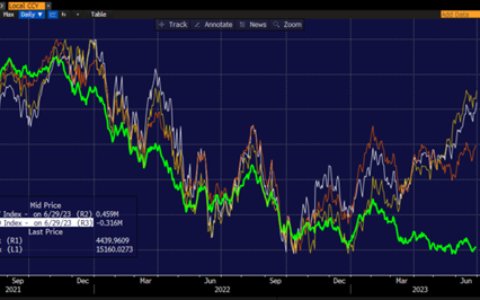
Introduction
The Securities Investor Protection Corporation (SIPC) was created by Congress in 1970 to protect investors in the event that their brokerage firm fails. SIPC is a non-profit organization that is funded by its member firms, which are registered broker-dealers. SIPC protects investors by providing up to $500,000 in insurance coverage per account, with a maximum of $250,000 in cash. This article will provide an introduction to SIPC protects and everything you need to know about the organization.
What Does SIPC Protect?
SIPC protects investors in the event that their brokerage firm fails. Specifically, SIPC provides protection for securities and cash held by investors at the brokerage firm. SIPC does not protect against losses due to market fluctuations, nor does it cover any investments that are not registered with the Securities and Exchange Commission (SEC).
How Does SIPC Protect Investors?
SIPC provides protection for investors by ensuring that their securities and cash held at a failed brokerage firm are returned to them. If a brokerage firm fails, SIPC will step in to liquidate the firm’s assets and return the proceeds to investors. This means that investors may not receive all of their funds back if the brokerage firm has a large amount of debt, but they will be able to recover at least some of their investment.
How Much Does SIPC Protect?
SIPC provides up to $500,000 in protection per account, with a maximum of $250,000 in cash. This means that if an investor has $500,000 in securities and $100,000 in cash held at a brokerage firm, they would be fully protected by SIPC. However, if an investor has $750,000 in securities and $100,000 in cash, only $500,000 of the securities would be protected.
How Does SIPC Determine Which Accounts to Protect?
SIPC determines which accounts to protect based on the ownership of the securities and cash held at the brokerage firm. Specifically, SIPC protects accounts that are owned by individuals, joint accounts, and certain types of retirement accounts. SIPC does not protect accounts that are owned by corporations, partnerships, or other types of entities.
What Types of Brokerage Firms Does SIPC Protect?
SIPC protects all brokerage firms that are registered with the SEC, regardless of their size. This means that both large and small brokerage firms are eligible for SIPC protection. However, SIPC does not protect firms that are not registered with the SEC, such as hedge funds or private equity firms.
Are There Any Fees Associated with SIPC Protection?
No, there are no fees associated with SIPC protection. SIPC is funded by its member firms, which pay annual assessments based on their net operating revenue. These assessments are used to cover the costs of SIPC’s operations and to fund the organization’s reserve fund.
What Should Investors Do to Ensure SIPC Protection?
Investors can ensure SIPC protection by ensuring that their brokerage firm is registered with the SEC. They should also confirm that their securities and cash are held in a separate account from the brokerage firm’s own assets. This can be done by checking their account statements and asking their broker for more information.
Differentiating Between SIPC and FDIC protection
| Feature | SIPC (Securities Investor Protection Corporation) | FDIC (Federal Deposit Insurance Corporation) |
|---|---|---|
| Purpose | Protects customers of failed brokerage firms | Protects depositors of failed banks |
| Coverage | Covers stocks, bonds, mutual funds, and other securities | Covers checking, savings, money market deposit accounts, and CDs |
| Coverage Limit | Up to $500,000 per customer, including up to $250,000 for cash claims | Up to $250,000 per depositor, per insured bank, for each account ownership category |
| Type of Institutions | Brokerage firms and investment companies | Banks and savings associations |
| Protection Offered | Protects customers against the loss of cash and securities held by the brokerage firm, in case of insolvency | Protects depositors against the loss of their deposits if the bank fails |
| Not Covered | Does not cover investment losses due to market fluctuations or poor investment decisions | Does not cover investment products like stocks, bonds, mutual funds, or annuities |
| Government-Backed | Non-profit corporation created by Congress, but not a government agency | Independent agency of the U.S. government |
| Funding | Funded by assessments on its member brokerage firms | Funded by premiums paid by insured banks and from earnings on investments in U.S. Treasury securities |
Conclusion
SIPC protection provides investors with a level of protection in the event that their brokerage firm fails. While SIPC does not protect against market losses or investments that are not registered with the SEC, it does provide up to $500,000 in insurance coverage per account, with a maximum of $250,000 in cash. Investors can ensure SIPC protection by confirming that their brokerage firm is registered with the SEC and that their securities and cash are held in a separate account. While SIPC cannot prevent a brokerage firm from failing, it can provide investors with some peace of mind knowing that their investments are protected up to a certain amount.
Author:Com21.com,This article is an original creation by Com21.com. If you wish to repost or share, please include an attribution to the source and provide a link to the original article.Post Link:https://www.com21.com/sipc.html











Comments(1)
It is important to note that SIPC protection is not a substitute for due diligence when selecting a brokerage firm. Investors should still do their research and choose a reputable firm with a good track record. Additionally, investors should diversify their investments to minimize the risk of losses.
Overall, SIPC protection provides a safety net for investors in the event of a brokerage firm failure. While it may not cover all losses, it is an important protection to have and can help investors recover some of their investment. By understanding how SIPC works and ensuring their investments are eligible for protection, investors can feel more secure in their investments.